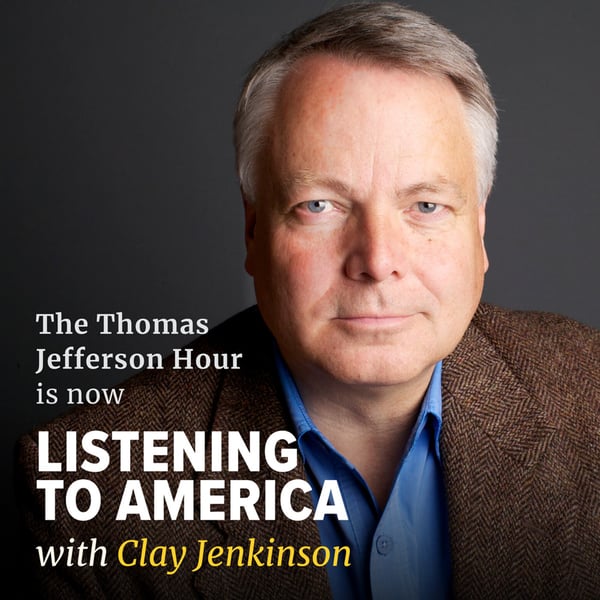#1547 Jefferson, John Marshall, and Judicial Review
Listening to America
Listening to America
4.6 • 1.1K Ratings
🗓️ 15 May 2023
⏱️ 55 minutes
🧾️ Download transcript
Summary
This week, Clay Jenkinson interviews frequent guest Beau Breslin of Skidmore College about the most famous decision in Supreme Court history. One William Marbury sued the US Government for not installing him into a post to which he had been appointed by outgoing President John Adams. Marshall could not find a way to get Marbury his job, but he did declare that the Supreme Court was the final arbiter of the Constitution, that it emphatically had the duty of determining which laws were constitutional and which were unconstitutional. Beau Breslin helps Clay sort out this monumental decision of 1803, which changed the nature of the US Court System forever.
Support the show by joining the 1776 Club or by donating to the Thomas Jefferson Hour, Inc. You can learn more about Clay's cultural tours and retreats at jeffersonhour.com/tours. Check out our merch.
You can find Clay's books on our website, along with a list of his favorite books on Jefferson, Lewis and Clark, and other topics.
Thomas Jefferson is interpreted and portrayed by Clay S. Jenkinson.
Transcript
Click on a timestamp to play from that location
| 0:00.0 | Hello, everyone, and welcome to this podcast edition of The Thomas Jefferson Hour. |
| 0:04.4 | This week, I interviewed my friend Bo Breslin of Skidmore College about the infamous case Marbury V. Madison. |
| 0:10.4 | I love my conversations with Bo Breslin. He's a big fan of the program, |
| 0:15.2 | and we often have some of the most spirited conversations here on The Thomas Jefferson Hour. |
| 0:21.1 | I want to thank all of you for listening. This is a really important case, |
| 0:24.0 | and it led to the doctrine of judicial review, which is now central to American life. |
| 0:29.2 | If you take the Dobbs decision on overturning Roe v. Wade, for example, |
| 0:32.9 | these nine unelected, unaccountable, unimpeachable, often conflicted, |
| 0:37.6 | members of the court make decisions that affect a whole nation of a third of a billion people. |
| 0:42.8 | So that doctrine that the Supreme Court can strike down a provision of a law, |
| 0:48.2 | or strike down a law entirely, that was not written into the original constitution. |
| 0:52.8 | That's something that was installed in 183 by John Marshall. |
| 0:57.2 | It wasn't without precedent in English and American thinking, |
| 1:00.5 | but it wasn't in the constitution itself, and Marshall's cleverness in the decision |
| 1:06.2 | is one of the most famous moments in Supreme Court history. |
| 1:09.4 | But we also talk about the personal relations between Jefferson and John Marshall, |
| 1:13.6 | which were always icy at best and mutually suspicious in most instances. |
| 1:19.6 | I'm just back from a long journey in the American Southwest for listening to America. |
| 1:24.5 | So we're headed that way, as you know. |
| 1:26.2 | And we had the most extraordinary time for nine days in Canyon Country. |
| 1:31.6 | We were on the Hopi Indian Reservation, on the Navajo Indian Reservation, on the Yut Indian Reservation. |
| 1:37.1 | We went to Lake Powell. We floated on Lake Powell, which I had never done before. |
... |
Please login to see the full transcript.
Disclaimer: The podcast and artwork embedded on this page are from Listening to America, and are the property of its owner and not affiliated with or endorsed by Tapesearch.
Generated transcripts are the property of Listening to America and are distributed freely under the Fair Use doctrine. Transcripts generated by Tapesearch are not guaranteed to be accurate.
Copyright © Tapesearch 2025.

